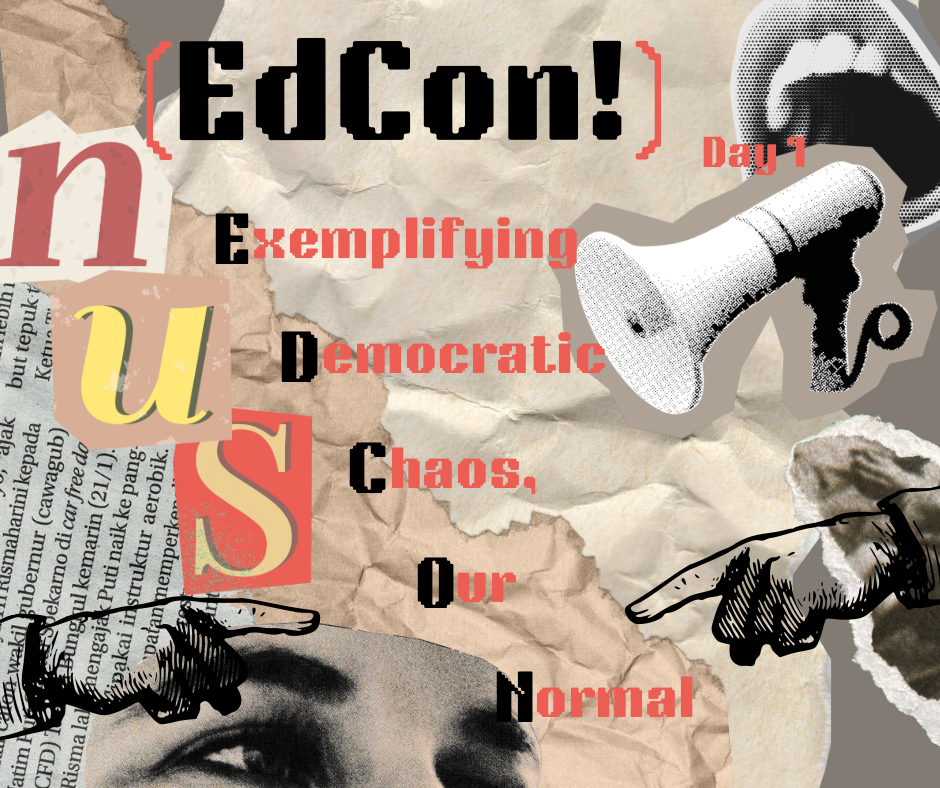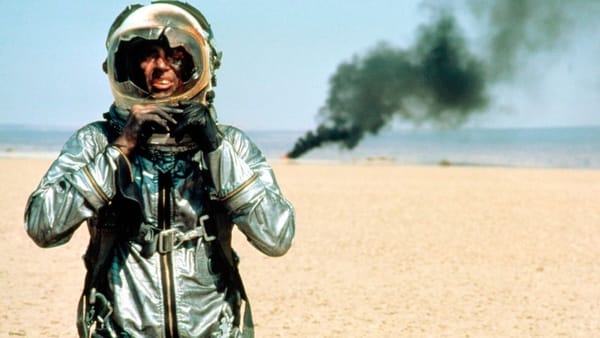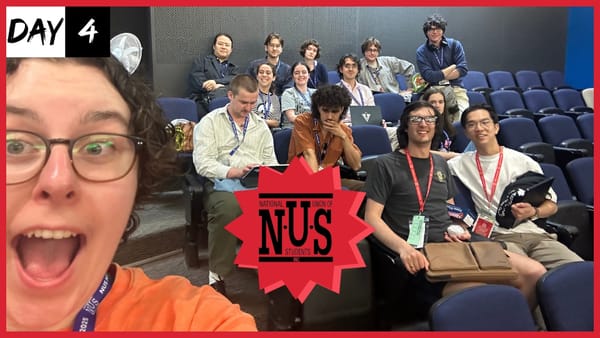Exemplifying Democratic Chaos, Our Normal (EdCon!) – Day 1

A summary of events from the first plenary: Introduction to EdCon. More to come!
The chaos that erupted in the first plenary of Day One at the 2025 National Union of Students’ Education Conference (EdCon) was, perhaps, not surprising. However lacking in information regarding the development of the EdCon events, the plenary started strong with a list of main arguments that all students were urged to discuss throughout the week. The list goes as follows: Palestine; university funding cuts; the record of the Labour Party government; the global rise of the far-right; the importance of a Union of Students; and the National Day of Action for Palestine on the 7th of August.
It’s a long list – and there was much to be said about each one.
Keeping Palestine in Focus
NUS Education Officer, James McVicar, opened with a discussion of the atrocities unfolding in Palestine, describing the situation as “the crime of the century.” He called attention to starvation in Gaza, rationing of food and resources, and the mass graves of workers, framing Palestine as a “central political question for millions of young people around the world.”
McVicar brought up what he highlighted as a global complicity in the crisis, referencing comments made by Foreign Minister Penny Wong in October 2023. On ABC Radio National, Wong stated: “It’s always very difficult from over here to make judgements about what security approach other countries take.” McVicar argued that the Australian government’s position amounted to cooperation with Israel’s actions in Gaza.
“No other word than cooperation.”
He went on to describe the response across Australia as a “mass movement,” citing the regular protests held since the October 7 attacks and the significant role students have played. University complicity was also raised, with several speakers noting ties between Australian institutions and weapons manufacturers. “Standing up for Palestine has meant standing up to basically every large institution in Australia,” McVicar said, adding that the right to protest and engage politically is increasingly under threat. He claimed that universities have been working to “shut down activism and protests around any issue that institutions and governments don’t want to hear about.”
Finally, one question was asked: “Are you willing to stand up to your institutions … complicit in this crime?”
The Party Ain’t So Fun
McVicar also criticised the current federal Labor government, highlighting the ongoing cost-of-living crisis, student poverty, and unmet housing policy goals. “What does the NUS have to show for it?” he asked, calling for the union to take a stronger stand against government policy.
The Global Far-Right
Additionally, the “fascist Donald Trump” and the replacement of traditional conservative parties was noted. McVicar argued that student unions must be proactive in resisting this trend, claiming: “The Labour government remains committed to the Trump administration.” One speaker noted that the effects of these shifts have been felt by migrants, trans people and other marginalised groups.
Several speakers called for the NUS to demand sanctions on Israel, remove weapons companies from university campuses, oppose funding cuts, and take stronger political positions. In contrast, one speaker emphasised the benefit of recent NUS statements circulating on social media, but claimed that Penny Wong’s statement that morning had undermined them: “Australia has been clear along with the international community that Iran cannot be allowed to develop a nuclear weapon. We support action to prevent that from occurring. And this is what this is.”
At this point a press conference was suggested, marking a turning point for the plenary.
Impeaching Free Speech
Discussion was subsequently opened to the floor, and arms raised quicker than a Trump scandal drops during campaign season.
One speaker raised concerns about increasing restrictions on students’ freedom of speech, citing the requirement that posters be approved up to two weeks in advance at some campuses. This, they argued, was “affecting the entire union.” They urged students to keep speaking out, stating: “We have to look toward the next period … we need to have freedom of speech to fight these problems.”
Another speaker voiced their concerns over the press conference and its potential impact on the student union. This perspective was met with swift rebuttal. One individual referenced the Labour government’s statement of support for U.S. action in Iran, suggesting that the NUS should take a public stance on such political developments to provide students with confidence in their union’s advocacy.
Following extensive discussions among various factions regarding the press conference, some students commented on the deviation from the conference’s introductory agenda. One student remarked, “What the fuck happens at EdCon?” noting it was their first time attending.
Despite calls to return to the planned plenary, discussion continued to escalate, with tensions surfacing over personal experiences, organisational tactics and concerns about preparedness. A proposal was made by SAlt to take a solidarity photo with the entire union. In response, part of Unity exited the plenary, leaving a gap in the room.
The Tert happily participated in the photo.




